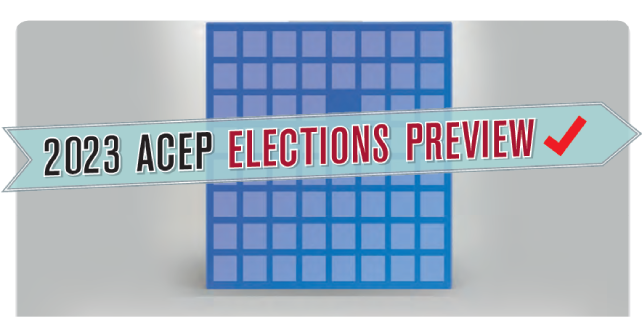
Evidence suggests that physicians would rather have better working conditions than additional income. Yes, fair reimbursement is important, but it may not be the primary driver for dissatisfaction. Unless we focus on the quality of work life for all of us, more individuals will no longer want to practice our specialty. Better work life equals better personal life where you can enjoy more personal freedom and rejuvenation.
Explore This Issue
ACEP Now: Vol 42 – No 07 – July 2023ACEP needs to continue to advocate for better working conditions. We have always been the saviors because of a fragmented and broken health care delivery system, but our specialty continues to suffer. We need to be more forceful and vocal in advocating for drastic reforms. Why do we think that long waits resulting in deaths and delays in care, hallway medicine, overcrowding, longer turnaround times, left-without-being-seen rates, the lack of resources especially in rural hospitals, and the difficulty in finding a bed for a transfer patient is acceptable?
No elected official or VIP who comes to an ED would have to endure what our patients experience. VIPs always go to the front of the line. We need to stand firm and aggressively advocate for change. This is not an easy task, but I fear that unless we improve our work life, we will lose more physicians to attrition and less students will join our specialty. This will have an even greater impact on emergency medicine and lead to a further decrease in our membership, which will ultimately make it harder for our organization to survive.
 Robert J. Hancock, DO, FACEP
Robert J. Hancock, DO, FACEP
(Texas)
Current Professional Positions: Clinical assistant professor, Oklahoma State University Center for Health Sciences, Comanche County Emergency Medicine Residency Program; attending emergency physician, Comanche County Memorial Hospital; attending emergency physician, Northwest Texas Medical Center
Internships and Residency: Emergency medicine residency, Parkland Hospital, Dallas, Texas (2007)
Medical Degree: DO, University of North Texas Health Science Center (2004)
Response
The decline in the popularity of emergency medicine and the subsequent significant decline in the Match statistics should be very concerning for all of us. The underlying causes of the decline are multifactorial, and many were significantly worsened during COVID.
The issue with boarding evolved into a crisis during COVID. This required many of us to see a significant percentage of our patients in the waiting room or hallway chairs. While this was a necessity during COVID, it definitely had a negative impact on medical students during rotations. I actually had several medical students tell me that they did not want to train and practice under those conditions. This resulted in many students choosing specialties that were in a more controlled environment with fewer variables.





No Responses to “2023 ACEP Elections Preview: Meet the Board Candidates”